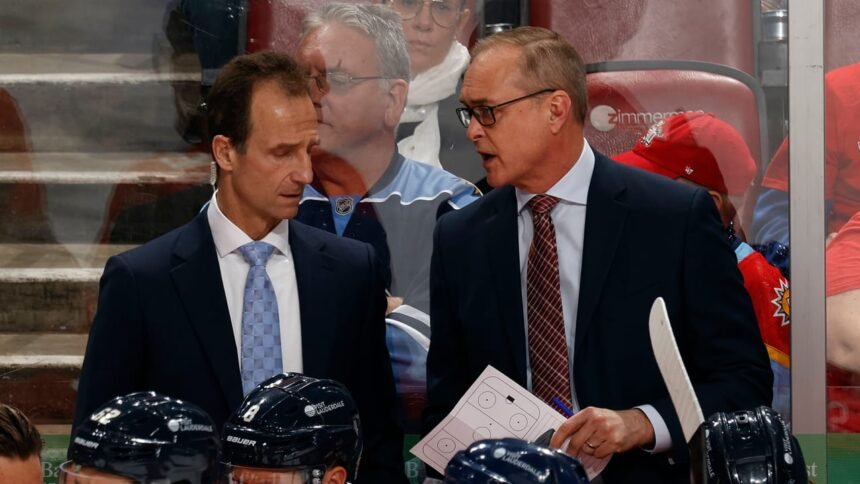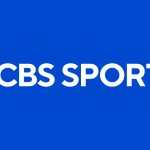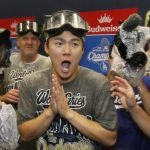As someone who has been an assistant coach for several years in the NHL, I can speak to the importance of the head coach empowering his assistants.
The value of that empowerment is significant through the course of the regular season to get through the grind together and not get overrun or wear out. But it also builds camaraderie and chemistry and discourse that helps push the entire staff through the Stanley Cup Playoffs.
There is no doubt that is happening now for the four teams remaining.
I can speak from experience on it, because I know that is one thing (Minnesota Wild coach) Dean Evason was so good at. He made sure that us as his assistants had a voice and we would address the players almost as much as he would.
You can tell now watching the coaching staffs that are connected. You see it because the head coach will not always be the one talking during a timeout, using the whiteboard to draw up a play on the power play or ways to kill a penalty or what to do in a 6-on-5 or 5-on-6 situation. The assistant will do that sometimes, oftentimes nowadays, in fact.
Sometimes an assistant will address the team in between periods instead of the head coach.
You can see the body language, especially when things are getting a little hairy. You can tell the coaches that are on the same page if you watch the bench, and you know it if you’re in the coach’s office in the background.
Dean made sure that at times he was allowing his assistants to come into the room and speak to the team in between periods, talk about adjustments and things like that. It wasn’t the same person talking all the time and that’s helpful, which kept things fresh.
As an assistant it helps you develop because you’re handling situations that normally a head coach would take. That’s very beneficial. But it’s most importantly, especially at this time of the year, a great message to the players that the staff that is guiding you is on the same page and saying the same things.
It’s a unity thing that we show that we are all on the same page as a group and we have one voice.
When the assistant coach feels he has a voice he feels confident to know he can use that voice, especially now as the attention grows and the focus tightens. And he can use that voice in coaches meetings, where the discussion can at times lead to disagreements.
I know speaking for Dean that’s what he wants. He doesn’t want a guy that is going to be a yes man and agrees with everything he wants to do. He wants you to voice your opinion.
With Bruce Boudreau, when I worked with him (with the Capitals and Ducks), if you’re coming to him and you feel strongly about something, he’s going to listen.
At the end of the day, they’re the head coach and the final decision is on them, but they want to be challenged and they want to be supported. That’s what makes good coaches good coaches and that’s what makes for good coaching staffs; everybody is listening to the people around them and they make decisions from an educated process.
It helps you come up with a plan together for how to attack a series as you prepare for it and how to attack adjustments both in-game and between each game.
The job of the assistant is important now too for everything he can do.
By now you have a pretty good idea of what the opponent is trying to do, but it becomes more of a chess match now because you’re seeing the team every game now and the attention on all the details is high.
There’s so much focus on it, but you’re really just trying to adjust and find areas that you think you might be able to pick apart. And that changes game to game.
The head coach needs support. He has to depend on the trusted people he has around him. And as an assistant you have to recognize when the head coach needs support and needs to be challenged and when to back off because you can’t be going at him every day.
The support of everyone on the coaching staff, head coach to assistants and assistants to head coach, is so vitally important.
The players want to win it for the guys sitting next to them and across from them. It’s the same for the coaching staff when the staff is together and a unit of one.
And, hey, when it’s going well, the assistant can also give the head coach a hard time for things he says in the media, like when Bruce Boudreau and I were with the Washington Capitals and in the 2011 playoffs, he ripped Madison Square Garden, saying the building didn’t match mystique and reputation it has, and that Washington’s home arena was much louder.
Well, he got a lot of attention for that, and he said he wanted to create a little controversy. Then he wanted to go to a movie after one of the games in New York and I was like, “I’m not going out with you in this city right now.” He got ripped by the Garden crowd for it.
It was a fun series and we could have fun with what he said because we were on the same page and the players all knew it.
We won the series in five games too.











